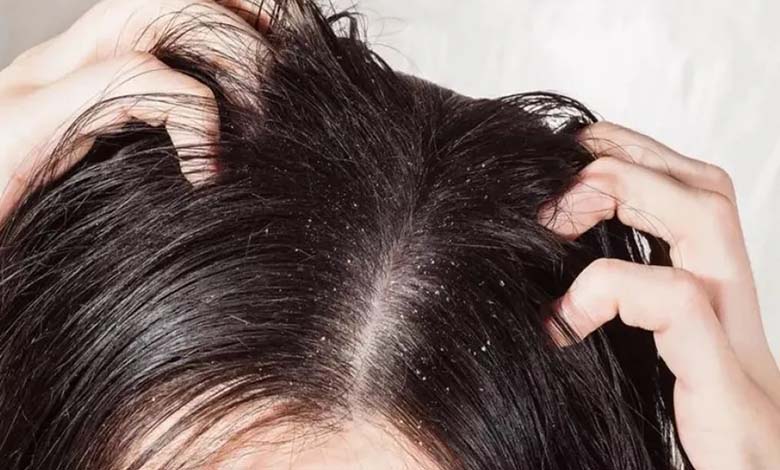How does zinc help fight dandruff?

Dandruff is one of the most common scalp issues worldwide. It affects millions of people and causes discomfort, itching, irritation, and significant aesthetic concerns. Although its causes are diverse, ranging from stress to hormonal fluctuations or excessive use of styling products, one mineral plays a central role in both its development and its treatment: zinc. This essential trace element, widely known for its role in immunity and wound healing, also proves remarkably effective in maintaining a healthy scalp and reducing flaking.
-
Fresh Onion Juice: The “Secret” to Fast Hair Growth
-
The Essential Role of Zinc in Protecting Hair and Skin Health
Zinc first acts as a regulator of the sebaceous glands. The scalp naturally produces sebum, a protective substance necessary for hair hydration. However, when sebum is overproduced, it creates an environment favorable to the proliferation of Malassezia yeasts, microorganisms considered one of the primary causes of dandruff. Zinc helps control this excessive production by balancing glandular activity. By regulating sebum, zinc reduces the conditions that allow the yeast to grow and trigger inflammation and flakes.
Another major mechanism lies in zinc’s antifungal properties. In the form most commonly used in anti-dandruff treatments, zinc pyrithione directly targets the microorganisms colonizing the scalp. By reducing their growth, zinc restores the scalp’s natural microbiological balance and progressively alleviates itching and irritation. The effectiveness of zinc pyrithione has made it one of the most widely used active ingredients in therapeutic shampoos for moderate to severe dandruff.
Zinc also plays a significant role in reducing scalp inflammation. When Malassezia multiplies, it triggers an inflammatory response that leads to redness, sensitivity, and increased flaking. Thanks to its anti-inflammatory action, zinc soothes irritated skin and supports the restoration of the skin barrier. This calming effect is particularly beneficial for individuals suffering from seborrheic dermatitis, a chronic scalp condition closely associated with persistent dandruff.
Moreover, zinc is essential for proper cellular turnover. Like the rest of the skin, the scalp regenerates continuously. When zinc levels are insufficient, this process becomes dysregulated, leading to an excessive accumulation of dead skin cells and the formation of thick white flakes. By ensuring balanced cellular renewal, zinc prevents the development of large scales and supports a normal regeneration rhythm.
-
Recurrent Infections: When Do They Stop Being Normal and Become a Warning Sign?
-
The essential role of ZINC in our body
Beyond topical application, dietary zinc plays an equally important role. A deficiency in zinc can increase the risk of dandruff by disturbing skin metabolism and weakening immune defenses. Individuals with diets low in zinc-rich foods such as seafood, nuts, whole grains, or legumes may experience greater scalp fragility. In such cases, nutritional supplementation can complement external treatments and improve overall hair health.
The choice of zinc-based hair care products depends on the type of dandruff. Shampoos containing zinc pyrithione are ideal for oily or inflammatory dandruff. For dry dandruff linked to dehydration, a formula combining zinc with hydrating agents may be more appropriate. For sensitive scalps, fragrance-free and sulfate-free products are recommended to avoid further irritation.
-
Does Your Child Really Need Vitamin Supplements?
-
Persistent Cold Sensation: A Health Concern Not to Be Ignored
Consistency is crucial when using zinc treatments. Anti-dandruff shampoos containing zinc often require use two to three times per week over several weeks to produce noticeable results. In more resistant cases, alternating between different antifungal agents may help maintain balance and prevent microorganisms from developing tolerance to a single ingredient.
Finally, zinc’s action is most effective when integrated into a holistic scalp-care routine. Maintaining a balanced lifestyle, managing stress, avoiding aggressive hair products, and minimizing mechanical manipulation of the scalp all support the healing process. Adequate hydration and a nutrient-rich diet further strengthen the skin barrier and reduce the likelihood of dandruff recurrence.
In sum, zinc stands out as a key ally in the fight against dandruff. With its antifungal, anti-inflammatory, sebum-regulating, and cell-renewing properties, it offers a comprehensive and lasting solution for restoring scalp health. By combining appropriate topical care with a balanced diet, individuals can significantly reduce flaking and achieve long-term comfort and scalp stability.












